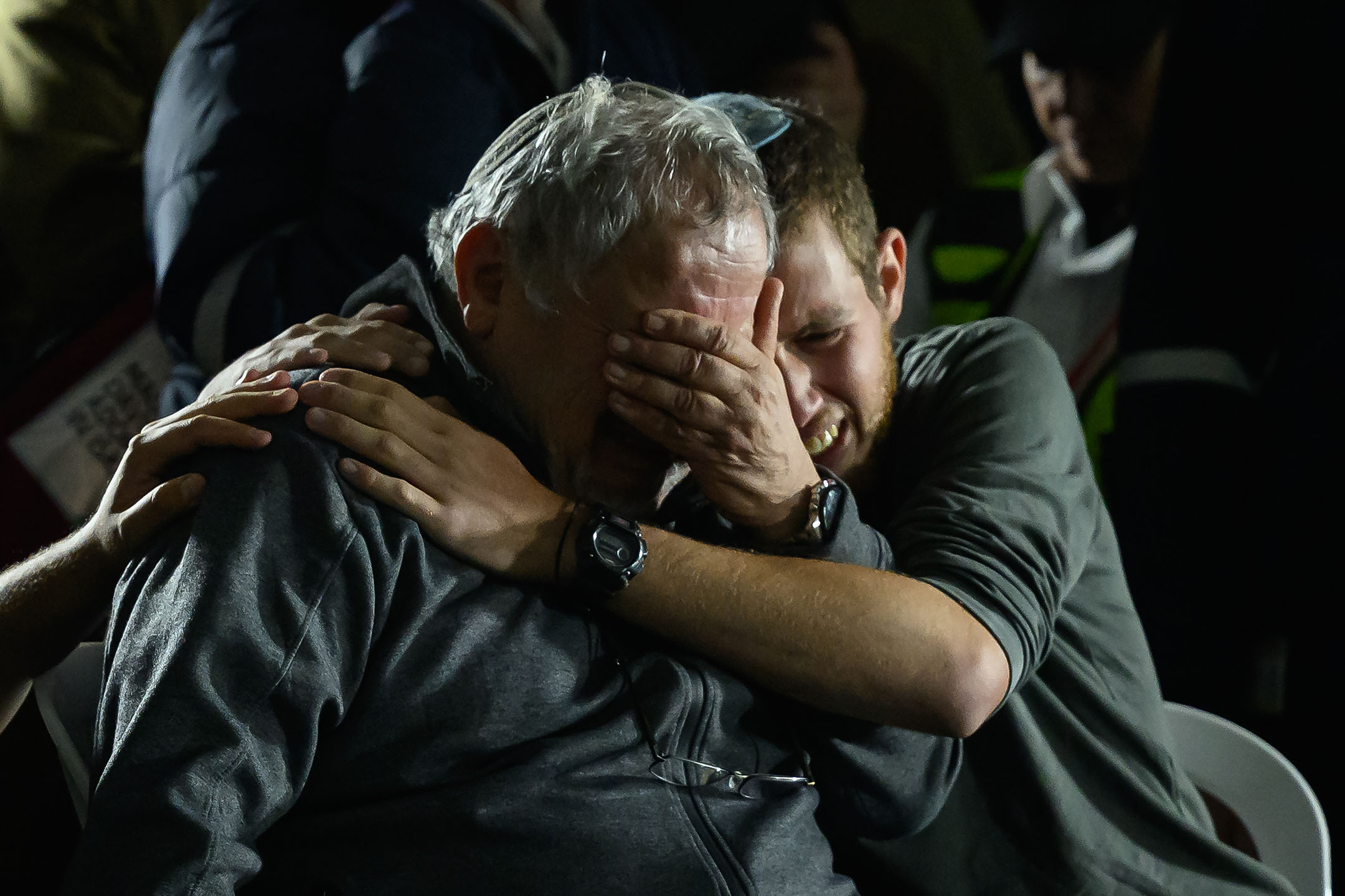It was a question that crossed the line. Shaul Amsterdamski was interviewing Rabbi Tamir Granot, who had lost his son Amitai in battle a week after the October 7th war started. Amsterdamski asked Granot to respond to a phrase some use (borrowed from Harry Potter) to negatively describe Religious Zionists: “Death eaters.” These critics accuse Religious Zionists of “sanctifying death above everything else,” instead of seeing life as the highest value.
A disproportionate number of Religious Zionist soldiers have fallen in battle; and their sacrifice is treated with great reverence and respect, as an act of Kiddush Hashem, sanctifying God’s name. That is the context for this absurd claim; these critics confuse honoring fallen soldiers with romanticizing death. Sadly, they have chosen to libel heroes, pouring salt into the open wounds of their family and friends. And Rabbi Granot told Amsterdamski how hurtful the question was to him as a bereaved father.
Amsterdamski’s question is rooted in a critique of the Akedah. At the end of Parashat Vayera, Abraham is told to sacrifice his son Isaac; and Abraham promptly takes up the task, only to be stopped by an angel at the last moment.
The Akedah narrative is one of the most influential passages in the Tanakh; it is the Torah reading for Rosh Hashanah, and the shofar is a reminder of Abraham’s faith that day. Above all, the Akedah served as an inspiration for the martyrs of the Middle Ages, who refused to convert to Christianity even at the cost of their own lives.
But does the Akedah romanticize death, and place martyrdom at the center of Judaism?
Contemporary theologians focus almost exclusively on the tension between faith and ethics when discussing the Akedah. It is disturbing to see the Torah entertain the possibility of child sacrifice. Some theologians argue that we emphasize the Akedah too much in the Jewish community, coming very close to romanticizing death.
When reading the Akedah, these important questions are the proverbial elephant in the room; it’s difficult to notice anything else. But there is much left to be explored.
In the ancient world, the questions posed about the Akedah were very different. Many commentaries wondered what was remarkable about Abraham’s actions; to sacrifice one’s son was seen as rather ordinary. Philo, the 1st-century Jewish philosopher notes that many non-Jews disparage the Akedah because “it does not appear a great and admirable deed….for many other men, who have been very affectionate to their relations and very fond of their children, have given up their sons (in child sacrifice).” Philo adds examples of this type of live human sacrifice, from Agamemnon to Indian widows; the question, he explains, is why would Abraham’s courage be singled out for praise.
Philo’s question focuses on the Akedah as simply the sacrifice of a child; but Abraham was actually giving up much more than that. God had promised Abraham decades earlier that he would build a great nation; and now God had taken that promise back. Everything Abraham had lived for would disappear at the Akedah. If we freeze the action for a moment at the top of Mount Moriah, the first-time reader is left with a question: Is following God a blessing or a curse?
And it is the perspective of the reader, particularly Jewish readers in past generations, that interests me. Previous generations of Jewish parents could see a reflection of their own lives in the Akedah. Perhaps other parents can say,“All I want for my children is happiness.” But for Jewish parents, this was not true. They knew that being Jewish would only make their children’s lives more difficult. But like Abraham, they raised them as Jews anyway. And as they took their young children to the local cheder to study Torah, they too were performing an Akedah, binding them to an identity that would invite adversity and danger in the future.
It is natural for doubts to sprout up. The Midrashim say that Satan appeared to Abraham, Isaac, and Sarah, questioning each of them and mocking their actions. A Jewish reader in the darker moments of history must have looked at their own situation and wondered if they had made the wrong choice, too.
The Church turned to these Jews and offered them a far better life if they converted. And yes, many Jews did convert. It was an easy decision, or more precisely, a decision to make life easy.
But our ancestors didn’t abandon ship; they followed Abraham, and refused to listen to Satan. That’s how we still have Jews today.
An angel intervenes at the last moment, and Abraham and Isaac come down from the mountain intact. The first Jewish family has survived. One passage in the Talmud says that Abraham had actually completed the sacrifice, but then God brought Isaac back from the dead. At the moment it looks like it is over, the Jewish future comes roaring back.
And that will be the story of the Jews; after a harrowing near-death experience in exile, where each successive generation nearly disappeared, life will return again. Generations had bound their children to Judaism, despite the obvious dangers; but they never lost hope in a better future. They had read the conclusion of the Akedah, and knew that one day, the Jewish people would be reborn.
And this is why the Akedah ends up being a story of hope for a people of hope. Even in the worst moments of exile, they knew that Isaac would rise again.
After he returns from Mount Moriah, Rashi explains that Abraham said to himself, “If he (Isaac) had been slain, I would have been left without grandchildren; I should have married him off already..”Abraham then begins to look for a wife for Isaac. Life is Judaism’s highest value; and we cherish it even more because of the challenges we have faced. In the shadow of the Akedah, there is an even greater obligation to embrace life.
Rabbi Granot offered a simple, obvious response to Amsterdamski’s question. He explained that there is no State of Israel unless there are those who are willing to make sacrifices to defend it. That is reality. And that is why the fallen soldiers are heroes.
Rabbi Granot went on to speak about how much these fallen soldiers loved life, using his own son as an example. After the war began, Rabbi Granot’s son, Amitai, told his fiancée that he wanted them to marry right after he would be discharged. He did not want to wait any longer than necessary. He wanted to grab hold of life and build a better future. He knew that in the shadow of the Akedah one must cherish life. Sadly, Amitai never got the chance to fulfill his wish.
We will never forget Amitai’s sacrifice. And we will never forget Amitai’s lesson, that in the shadow of the Akedah we must appreciate life even more.
Rabbi Chaim Steinmetz is the Senior Rabbi of Congregation Kehilath Jeshurun in New York.




